
Which companies are leading the Quantum race?
- 0
-
Posted by
The age of classical computers is coming to an end. Moore’s Law is beginning to hit the barriers of what physics will allow, and our need for ever-more intelligent and predictive systems demands a new way to make computers smarter and faster.
Enter Quantum Computing. Theoretically able to make even the most powerful supercomputers look plodding in comparison, Quantum promises to revolutionize High Performance Computing.
According to Morgan Stanley, the Quantum Computing market could be worth $10bn by 2027. Because of this, companies of all shapes and sizes are looking at owning a piece of the Quantum landscape. From historical giants like IBM and Nokia, the current big players such as Microsoft and Google, right down to smaller startups such as 1Qbit and Rigetti, all are looking to stake their claim. But which companies have the IP to back up their ambition?
Using PatSnap’s IP intelligence platform, IDG Connect was able to explore the Quantum computing market and see which companies are filing the most patents, the rate at which they are filing, and the potential value each organization’s portfolio is worth.
Obviously, patents aren’t the only measure of innovation, but they do help indicate which companies are looking to commercialise the technology.
Note: We have kept this piece within the field of quantum computing, and left out areas such as quantum sensors, clocks, and communications.
US and the big six rule
The US is the hub of Quantum activity, with nearly 40% of global patents. Australia and China own around 7% each, Japan 5%, South Korea 4%, Canada 3%, and the UK 2%. Mainland Europe, as a whole, claims around 11%.
Given the nascent nature of the space, there are a surprising amount of companies looking at the Quantum space. However, the patent landscape is largely dominated by a few players – both big and small. If investors love the idea of FAANG, here’s Quantum Computing’s DIMING:
D-Wave
D-Wave is one of the leading startups in the field of Quantum computing. Although there have been claims about whether its offerings are ‘true’ quantum computers, it was the first company to offer such systems commercially. The British Columbia, Canada-based company – which has raised $174 million in funding - has filed over 370 quantum-related patents since its founding in 1999 (152 granted). These patents have a total estimated value (based on indicators such as citations, patent family sizes, geographical coverage, patent age, legal status etc.) of just under $21 million.
The company continues to maintain a steady pace of innovation: in its first decade the company filed 354 patents around quantum computing, 131 patents from 2010 to 2014, and 61 from 2015 to today.
IBM
If D-Wave is the David of the Quantum landscape, IBM is the Goliath. Big Blue has been filing patents relating to Quantum computing since as far as back as 1994, but has recently been investing a lot of effort in the space. The company is regularly announcing new milestones around the number of Qubits its systems can work with, and allows anyone interested to run tests and simulations using the IBM Quantum Experience (QX).
IBM has filed over 200 patents in the Quantum space – 120 granted - valued at just under $30 million. It is the rate of innovation, however, which suggests the company will be a major player in the space over the next few years. The company has filed 70 patents since 2014. According to Patinformatics, “IBM is building an enormous portfolio in the QC space, primarily in Qubit Technologies, and Hardware, and have had the most patent families published in the last two years.”
Microsoft
AI, AR, Cloud, Quantum. It Seems Microsoft learnt its lesson hard after missing out on the smartphone bandwagon and is keen to stay atop of the latest trends. The Redmond Company has filed over 250 patents relating to Quantum technologies (145 granted), valued at an estimated $30 million. Last year the company released a quantum computing development kit, including the Q# programming Language designed for expressing quantum algorithms.
Intel
Intel is another company keen to jump aboard the Quantum train. At this year’s CES Intel CEO Brian Krzanich announced the company had created a 49-qubit superconducting quantum test chip, and is looking to create Quantum computers based on regular old silicon. The company has filed a little over 100 Quantum-related patents, with a portfolio worth around $18 million. Though it filed 35 in 2016, there were no related patents filed in 2017.
Northrop Grumman
Defense giant Northrop Grumman has been exploring the Quantum arena, with over 200 patents in the field valued at $16 million. The company hasn’t really spoken about its Quantum ambitions but has a number of openings on Glassdoor and other jobs sites.
Given the massive breadth of fields Google and its owner Alphabet are engaged in, it should be of little surprise that the search giant is interested in massive computing power. Its researchers claim Quantum supremacy – when working Quantum computers overtake the capabilities of ‘classical’ computers - could be just months away. The company has around 70 patents in the Quantum field, valued at just $10 million. 2014-2016 saw a flurry of filing, but nothing in 2017.
Best of the rest
Berkeley, California-based Rigetti Computing claims to be a ‘full-stack quantum computing company’. Labelled a ‘spaceshot’ company upon its graduation from the Y Combinator in 2014, the company offers a Forest; a programming and test environment for Quantum computing, and has its own Quantum programming language called Quil. The company has raised just under $70 million and has 19 patents in the field.
Palo Alto startup QC Ware aims to create enterprise software solutions for quantum computers, and counts Airbus as one of its early investors. Although it only has a small portfolio of patents, one of them is for ‘Quantum Computing as a Service’ which, although still pending, could obviously be quite an important one if granted.
Some companies were once incredibly active in the space but have since gone quiet on the patent front. Japanese Telco giant NTT has over 70 quantum-related patents in its portfolio, but less than a third were filed this decade, and none since 2015. Last year, however, the company did reveal a Quantum Neural Network (QNN) prototype and make it open to public testing.
HP filed a slew of patents in the early 2000s – and has over 100 in the field - but since 2011 has ceased filing anything Quantum-related. However, it’s Quantum Information Processing (QIP) Group continues to research the area out of the company’s HP Labs in the UK. Japanese giant NEC Corporation was also a hub of Quantum activity in the mid-2000s, over 100 patents in the field, but has been quiet for most of this decade.
A host of universities; Sydney, Michigan, Bristol, Southern California, Maryland, British Colombia, Yale, and other bodies such as the Japan Science & Technology Agency, are all also researching the field.
As previously mentioned, there’s more to the landscape than just patents. Other companies in the Quantum landscape include IMEC, Lockheed Martin, 1Qbit, Accenture, Atos, Booz Allen Hamilton, and Fujitsu.
There is also no shortage of other companies, both big and small, looking into the field of Quantum Communication. The likes of Nokia, Raytheon (and its subsidiary BBN Technologies), Toshiba, Alibaba, BT, Mitsibushi, Quintessence Labs, MagiQ Technologies, are all active in the fields of Quantum Key Distribution and Cryptography.
Also read:
How close is quantum computing?
The latest quantum breakthroughs explained simply
Is quantum computing nearly here yet?
101: The quantum vendor market race is hotting up
With quantum computers here, developers seek uses
Why 'qudits' (not qubits) may be the key to quantum computing
PREVIOUS ARTICLE
«Will the ‘future of work’ make employees more productive?Add Your Comment
Recommended for You
US ‘hacking back’ law could create a cyber wild west of vigilantism
Dan Swinhoe casts a critical eye on the future
Could Huawei smartphone deal fail spell full-blown Sino-US trade war?
Phil Muncaster reports on China and beyond
Content Library
Most Recent Comments
-
-
My experience is that businesses read what the 'techsperts' spout about IT security measures and become a little complacent, thinking that if...
Robert Edwards on Why middle management and the board disagree on GDPR
-
-
-
Meanwhile Perl limps along getting stuff done.
Mark on Which languages are developers planning to learn next?
-
-
-
Excellent Article. Helps to overcome the misunderstanding of many so-called "IT professionals". It´s about data privacy, not data security....
-
-
-
We know BlockChain is the technology behind crypto-currency. Given that MtGox theft of $400M & the recent(last week) coincheck theft of $550M...
-
-
-
The debate over IT Skills is not new, and prophets of doom have long foretold the demise of mainframe skills, and mainframes, for years. Mainframe...
Derek Britton (Micro Focus) on Last of the mainframers: Big Iron's Big Crisis
-
-
-
RPA , AI, Digital Employees, Total Workforce and Digital Transformation are buzzwords to watch in 2018. More and more companies are implementing...
-
-
-
My experience is that businesses read what the 'techsperts' spout about IT security measures and become a little complacent, thinking that if...
Robert Edwards on Why middle management and the board disagree on GDPR
-
Our Case Studies
IDG Connect delivers full creative solutions to meet all your demand generatlon needs. These cover the full scope of options, from customized content and lead delivery through to fully integrated campaigns.
Our Marketing Research
Our in-house analyst and editorial team create a range of insights for the global marketing community. These look at IT buying preferences, the latest soclal media trends and other zeitgeist topics.
Poll
If it were legal, would your organization hack back?











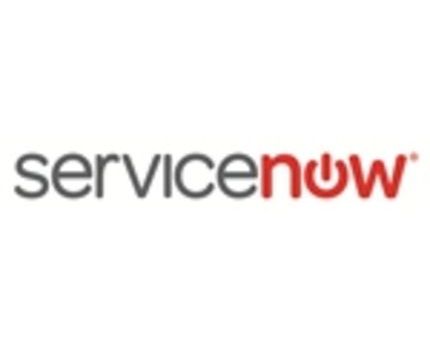




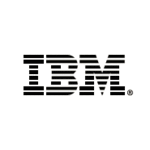

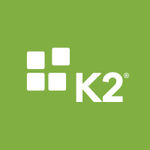

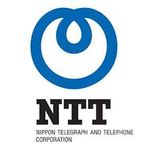
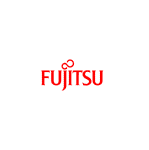












Comments